Recently I visited the samadhi temple of Sadhu Chidambaram Swami, who is also known as “Valla Naattaar”. A samadhi is the location where the physical body of a saint or siddha is burried. Such locations are spiritually very powerful, as the saint continues to interact with devotees through his samadhi. I would like to narrate a few stories of this little known saint of South India, who entered samadhi in recent times.
The samadhi of Sadhu Chidambaram Swami is situated within the region of his ancestral house. This is in a village called Paarai Kaadu (rock forest) that comes under the township of Valla Naadu. Valla Naattaar means a respectable person from Valla Naadu.
Two of the great gopurams in the third enclosure of Tiruvannamalai temple were built by kings of the Valla Nadu dynasty. Valla Nadu used to be the capital of a great kingdom during the late 17th century. It is still believed that there are forts and palaces buried under present Valla Nadu. The township comes under Tuticorin district but it is closer to Tirunelveli city, just 28 kms on the way to Tuticorin.
Not having facility to go for education, Chidambaram was entrusted with the village herd of sheep. His father was a simple village doctor who could cure diseases with herbs and leaves collected from nearby forests. His parents were very saintly and the village people respected Chidambaram’s father as a sadhu.
As a child, people have seen unearthly cobras around Chidambaram as he slept under trees, while the herd was grazing. When his friends came back from school they always gathered around Chidambaram who would give them sheep’s milk in coconut shells and would talk to them about godly principles of life, using a level of language the children could understand. There were times when he fed the cobra and gave remnants to his friends, who became scared and wouldn’t accept them. Chidambaram would smilingly drink the milk and would tell them, “By taking these remnants, you will become free from danger of any poison.”
As he reached teenage, Chidambaram left the village on a long pilgrimage to different holy places. He wore kaupinam and a white cloth which came down to his knees, sometimes he was clean shaven, both head and face and other times with long hair and beards.
He took Vallalar, Ramalinga Adigalar, the author of Tiruvarutpa (“song of holy blessing”), as his Guru, even though they were not contemporaries. He used to chant Vinayakar Agaval (a composition of the lady Tamil poet Avvayar), and a small prayer composed by Chakizhaar known as ‘Siva Puranam’, which is the shortest summary of the Tamil Siva Puranam done by the same author, and different verses of Tiruvarutpa. Seeing the effulgent pilgrim, people gathered around him in different temples. If anyone would fall at his feet, he would also fall at their feet. Embarrassed, people would just fold their hands and respect him. The sadhu responded the same way. Apart from conversing with loving and affectionate words, he never gave any sermons.
On his sojourn he came to a village near Udumalaipet in Palani district. Seeing a high hill in the area, he was mysteriously attracted and wanted to build steps to the top and arrange there a monthly Jyothi as done in Tiruvannamalai. The invocation in Tiruvarutpa, which is always chanted like a mantra by the followers of Vallalaar, is:
arut perum jyothi, arut perum jyothi
thanipperum karunai arut perum jyothi
This couplet means, “Supreme grace light, supreme grace light, shower your compassion on us, supreme grace light.”
He approached a farmer Naachiappa Gounder and asked his help for building the steps. Gounder was sceptical about the sadhu. Chidambaram allured him by saying that he would cure the skin disease which Gounder had been suffering from for a long time, even after trying English and native medicines.
A committee was formed and construction began. Sadhu worked hand in hand with the laborers and accepted frugal food. The construction was finished within a very short time. The day before amavasya, as guided by the sadhu, they filled up a huge barrel wok with 50lt of oil(a mixture of gingely, coconut, mustard, castor oils, and ghee). Ten long dhothis were tied together to make a long wick, which was then lit on fire.
Seeing the jyothi in the dark night, lots of people from nearby villages assembled. Prasadam was cooked to feed everyone who came. The sadhu requested that this ceremony be done every month. Next morning, seeing that all this time the sadhu never did anything for curing his ailment, Gounder used very harsh words, calling the sadhu a cheat. While climbing down the hill, smilingly Chidambaram took out from above his right ear some Durba grass and told Gounder to boil it over night in 3 liters of water till it reduced to 2 cups. Even though the grass mystically appeared on his ear, he also pulled out a plant from a nearby bush, and told that the root of that plant should be boiled together in that water. Gounder was supposed to drink the water in the morning and to make a paste from the root to apply on his palms.
Having done his service for the people of the area Chidambaram went on his way that afternoon. On the third day, not only did Gounder’s ailment disappear totally, but also the root disappeared. This and a few more experiences were narrated to me in person by Gounder who is now 92 years old, but hale and healthy.
After establishing a similar jyothi service on 6 main mountains, and six subsidiary hills, Chidambaram returned home. On the insistence of his parents he married. Before the marriage he requested the girl to be a vanaprastha and she agreed.
One day a single tusked elephant showed up in front of the house and sadhu kept him as a friend for over 11 years. The head of the dead elephant is kept in the meditation room cured with some technique suggested by Sadhu Chidambaram.
Another time a large baby elephant came from the forest and was kept as pet by sadhu. He grew up into a huge elephant, attracting all the pilgrims who came to feed him. After the samadhi of Sadhu, the elephant fasted till death, and was buried close to the Samadhi.
The Samadhi day of Swami Chidambaram is celebrated on the full moon day of the Tamil month Maasi, (around the end of February). Almost 100,000 devotees gather each year. Everyone is fed sumptuously for three days.
At all of the Jyothi hills established by Swami, 500 to 1000 people are fed on the Deepam day (once a month). In the Samadhi temple every day the senior men and women of the village are fed along with all the guests who visit (around fifty each day).
The repeated words to devotees by sadhu are : “Do the paaraayana of Vinayagar Agaval, Sivapurana and Arut Perum Jothi. Do annadaanam. Light the jyothi on these hills and also at your home. Live a simple and pure life”.
Another experience was narrated to me by Mr. Goundar, which I would like to share. One time he was traveling along with Swami Chidambaram in a jeep to attend a religious program. On the way the jeep ran out of petrol and stopped. The driver didnt know what to do, as they were some distance from a city. Sadhu Chidambaram asked the driver if he had a bottle of water. The driver replied that they had a two liter bottle of water.
Swami told him to pour the water into the petrol tank, and then drive till they came to a petrol bunk. At the petrol bunk he should pay the owner for two liters of petrol. The driver did as Swami told and poured the water into the petrol tank. Amazingly, the jeep started and they were able to drive. After some time they came to a petrol bunk, and the driver informed the owner of what had happened and asked to pay for two liters of petrol. The owner took inventory of their petrol supply and found there was a shortage of two liters of petrol.

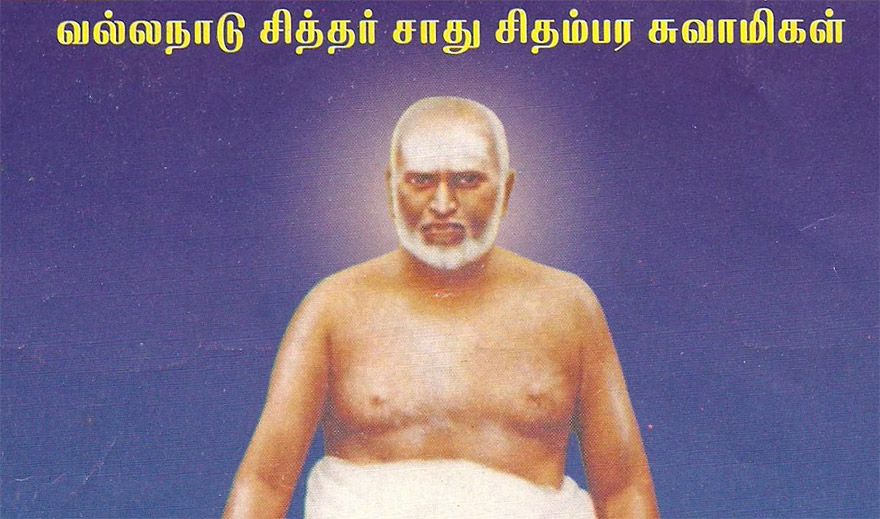
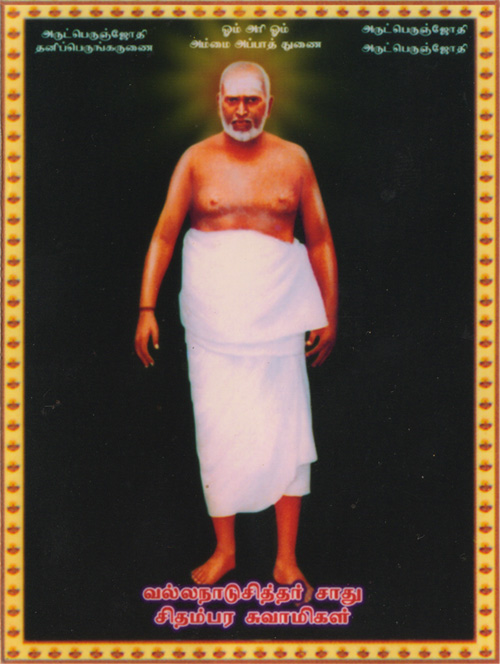
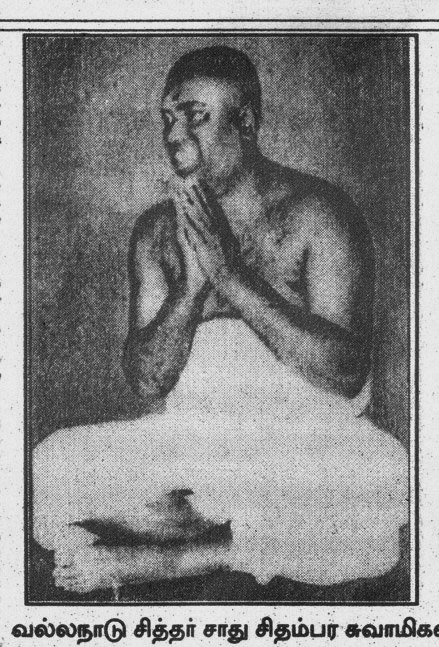
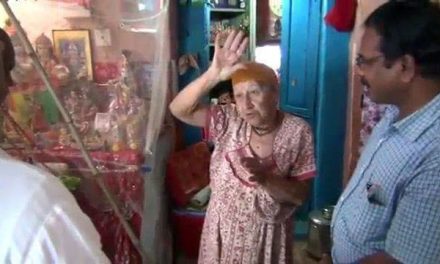
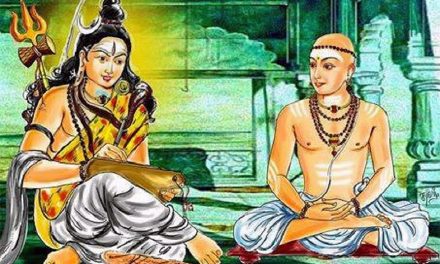
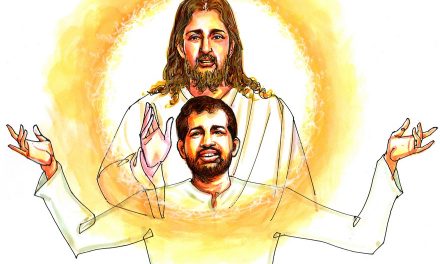










Simply Wonderful!!!
As a spiritual aspirant i feel blessed by reading this facts.God shows miraculous powers through perfect devotees.It is with the the aim that ordinary people should see them and turn to sacred way of living.
we all should attain the state which Sadhu Chidambaram Swami has attained. this article is eye opening
According to the article if wishes comes true and hurdle of life goo aaway es away, then I would like to know whether my personal hurdle of my life will go away or not? If it does I will believe it.
Hurdles are meant to make people evolve spiritually. Such evolution occurs only when we expose our minds to spirituality by visiting temples, associate with the holy, keep company of God and saints through books etc. Miracles do happen and it is a fact which we will experience through divine grace and our spiritual practices. If the above article has given you some ray of hope then stick on to that hope and pursue in that direction so that it turns into unshakeable faith. It is this faith in the almighty that works miracles. It is the seed of hope that when provided with the necessary conditions, such as light, soil and air that it germinates and grows into a plant of faith and at the right time bears the fruits of miracles. All the best(Reply to this comment)
I am blessed to read this article. Thank you so much.
really every article is worth preserving. i am very delighted i have been on the list to receive the news letter
excellent, may the swami shower his blessings on all of us
who are in search of peace and harmony.
I am so happy to know of another swamiji who has attained jIvasamAdhi! Earlier, Shri Raghavendra Swamigal of Mantralaya.
We are a blessed country with great spiritual traditions. Sadly materialism and western culture has started eroding our values. Hopefully more of such divine souls will emerge and guide us.
with people like yourself still here we will always have our values, dont count your self and others like you out so soon , india has seen many and will see many .
I should have been blessed to be able to read this article and get to know of the great men who has lived among us. India is a country of saints and sadhus. All Indian are also blessed. It is for us to preserve and live up to the expectation of almighty.
Have no fear, India will never be abandoned by God. Your spiritual influence has spread over the entire world and affected millions upon millions of people. Only in India is such an ancient, spiritual tradition still manifest. Only India produces so many saints and mystics. Only Sanatana Dharma is the true way. All else are shards of glass, having little of the totality or the full grace of God. I am a westerner, living far away but for many years, India and it’s holy books have inspired me and comforted me.
Great are the ways of almighty to help and guide the mankind.My salutations to swamyji.
A fantastic and a real story
Fantastic article. Myself being a Tamilian never knew this story, though I heard of Swami Chidambaram and annual Maasi festival. Keep up the good work. May God give you good health and resources to continue this good work
it indicates that miracles can occur, and i beiieve in miracles
thanks! thanks! thanks!
Excellant articles. if it was published when he was living. may be i should go and see him.
A very good article.thank you.
A great article narrating real instances.Such sadhus are a part of Indian Great Spirituality.It is very rare to to come across such spiritual people.Just by reading such stories, faith and spirituality is itself invoked.Many many thanks to the great website & the author.
conditioned by our environment, we decide what is true or not.Keeping that aside, we can see the beauty of swami chidambaram’s life and how great souls not only guide people during their lietime but also after. Thanks for this.
happy to know the great personolities. thanks for the your efforts.
We are a blessed country and our country has brought forth many such spiritual masters. Only if we had a heart to believe in life’s miracles and experiences and the profound effect it leaves on each one of us.
I am happy to read this article on Swami Chidambaram.If God Wishes
I would like to go to his Samadhi and thank him for solving many problems which I have now,and hope God will remove them one by one,starting from my health,property probate,and marrige of our son.
These are the three things which I hope I will get over through.
Thank you.
thank u god send people like this to show his blessings. your services are great.
k.ramanjulu, Kadapa, Andhra pradesh
I am indeed very fortunate having stumbled on this site of India divine org. I do not even know how i came across. The articles of Atmatattva were the first ones i read, and i am indeed blessed to be in mailing list and receiving the articles. This article is great, reimposing and concreting the faith we all have on the divine interventions. I sincerely wish that all people connected to this site beblessed by god almighty.
Awakening.
This is not only the article, we get lots of knowledge of uor lagecies. your work is ubdoubtly wonderfull. Please permit, to forward or send it to my friends and magazine or newspapers.
This is the first time I am hearing about Sri Chithambaram Swamiji
and thank you for having made this great service. Hope we all be
blessed for peace and well being by His Holiness.
Sankara Narayanan
good article.
Scientist required an evidence for evrything such type of spiritual things. But most of the people does not know that events can not be created we came accross such a beautiful events, which enlighten us. Tham may this in life we have to learn.
Am blessed to hear about his divine born. Thank you.
India is such a great country that it gave birth to great philosophers, spiritually great people,leaders,and what not.we are proud of you maa Bharathi.I am really delighted to read this article.Thanks.
Good to know another Siddha. Hope you publish more of these articles which are really inspiring for the truth seekers.
May peace and blessings be to all –
amazing article.i personally thanks india divine for this wonderful article.
# PRANAM GURU MAHARAJ JI #
# JAI SAT CHIT ANAND #
it indicates that miracles can occuur.
may the swami shower his blessings on all of us.
regards,
saiprasad.mudium
splendid
God Almighty has the key to every miracle and insight.Thanks
Really a very nice information,infact i do not know how my name got added in this listing. Thanks to GOD for having me come across this website,it is nice that our country has such spiritual leaders and we the present day people need to follow their steps and certain stage of our life. My humble namaskars to swamiji
Sir,
Good Article. But instead of giving the instances of miracles, you should have given the dates of important events of his life and the time and ways of his meditation
i m overwhelmed by reading the article of shri.chidambaram swamiji of his divine power & simplicity in life.please keep sending articles of such hidden personalities and enlighten us.
really heartned to hear such lilas of god and kindness of such people. really how such peoople give thier people to service of people. and moderators of this website i am a madhwa by birth. i know many saints and people in our community who have shown same tyoe exemmplary work as done by above sadhu. i want you people to throw light on madhwa saints. i think you will consider my request
I feel proud to be Indian as “it happens only in India”
Such articles help remove ageold doubts on our spiritualism and its efficacy in rescuing us from our household problems. Similar write-ups on our spiritual leaders will certainly go a long way to guide us properly move ahead spiritually for the good of all.
The article is both illustrative and educative for the new young generation of Indians who have a lot of doubts on our traditions and spiritual strengths which even Westerners would like to know and follow. Such writings are most welcome for the benefit of all.
thank you for the wonderful article. it is indeed the blessings of the Divine that we receive the email and then open it and read it at the right time. that itself is a manifestation of the Divine Grace.
This is a great article. We normal people living in the external world need these kind of stories to keep our minds and spirits aligned with the divine light and the divine goal. Further it illustrates and brings to life the many God men that have walked, possibly continue to walk the earth that we are not aware of. These stories bring hope for mankind.
Peace and Blessings to all
an excellent article. happy to know that such saints are also here now a days. excellent…
An wonderful article of great interest to read and know. Our Coubntry is always blessed with personalities of this kind and we are benefitted through their devine knowledge and experience. My prayer would- if at all I have rebirth, I should born again in India
to know that we are the citizens of the same country where such mahans lived is in itself gratifying
Awesome article. I feel that all these things should be mandatory in studies when the children are in growing age. So that, atleast we can expect the rebirth of all our tradititional values, beliefs, trust and priciples of truth and in God. This way we’ll work like nurturing the plants.
Thank you very much for your service. Its really a boon to read such rare articles from inside our home. please give more such articles about the other siddhas of south. i feel that there is a common feature among many of the siddhas ie. many of them were basically,sidhha vaidhyas(doctors). i feel proud to be born in this great country.
My prayers and respectful bowing to the Revered Siddhar.
I have been told by good authority that those who worship Parabrahman with full devotion and consciousness can eventually perform miracles. Such was Chidambharam.
It is fantastic and divine
May his blessings spread all over the world and people be enlightend by that. This earth, the lovely planet is sustaining because of such a great sages travel to earth on time to time as and when needed.The life, he lived is really inspiring to all and glorifying the human civilization irrespective to caste, creed and culture.It is really an article full with wisdom and supreme power. I feel blessed by having know a little about him…
We all should become like him. But time is less . so do sadhan from now on wards.
thank you very much for letting us know about such great siddhars.
I have personally known this sittar and experienced his divine grace and miracles. I was really fortunate to come in contact with this great sittar. If the readers are interested would add some more details about this great simple man
I am surprised at the consistency in human tendency to seek miracles from the saints to understand and accept their spirituality.
I am very happy that the details of one of the gems of spirituality have been brought to the notice of the blessed community of indiadivine.org
Could anyone provide the exact location of the Mahaan’s Samadhi and how to approach it.
regards,
Ananth
Very informative. Could the author please give the specific location of the jeeva samathi to facilitate foreigners like me to visit it? Much obliged for information on the nearest town, railway/bus station, bus numbers, hotels etc.
Dear MohanJi,
I heard it directly from a great saint in America that in the future, India will be what America is today – full of technology and wealth; and that America will adopt the Spiritual Vibrations of India.
It is therefore no surprise that the US administrations have been very involved in transferring much of the secret technologies to India.
Hari Om. Thank you for truly inspiring article on the life and miracles of Sri Swami Chidambaram; we are in need of theseinspirations in the times that we live and for the challenges that we face. Sri Swami Chidambaram is has come to teach us in our sadhana and guide us in our path to God Realisation.
Hari Om.
Kribba Moodly
Auckland New Zealand
Arut perum Jyothi, Arut Perum Jyothi,
Thani Perum Karunai, Arut Perum Jyothi…
Anbe Sivam
We are all blessed to know about this great soul.
With loads of light and love
Sanjay BV
Tamil Nadu is full of Siddha Purushas. Girivalam is done in Thiruvannamalai to get the blessings of Siddha Purushas, who are still there in subtle form.
.Vaidyanahan
Namaskar
Thanks for sharing this article about Chitambara Swamy. India is blessed with such atmans
and we always been getting them again and again.
I hope people start appreciating and stop polluting our holy places. Even sanctimonious Thiruvannamalai is not encroached and the hill is badly polluted. Wild Life Department is sleeping as usual and people are abusing by throwing rubbish , particularly plastic. Something got to be done , urgently and the same throughout India.
Avery good article. Biographies of saints if created like this goes a long way in preserving our valued heritage.
You believe or not is just a personal matter but truth must be told and shared for the benefits of the entire human race. If you do not take the steps towards truth you will never be able benefit from it. Surrender yourself to the Divinity and it will take care of your so called hurdles.
Om Gurubhyonnamah. I am blessed to read the brief history of Swamy Chidambaram.
May this great Saint guide us all for the liberation of all the souls.
The story of Swamy Chidambaram is inspiring us to develop ourselves spiritually.
It is really amazing and everyone in our country are blessed by our swamy chidambaram
Realley amazing person like me r luckey if we get darshan of the Great saint looking blessings of the sadu
Thank you for sharing these stories about a great personality. It is stories like these and the morals behind these stories that inspires us to live a simple and a striaght forward life.
Such an inspiring story, thanks for sharing
I am blessed
l ways believe that samadhis of great saints are the real temples
Dear Sirs,
I would like to visit this Great Samaadhi of Swamy Chidambaram. I am from Bengaluru. Request, can anyone will be able to guide me how to reach there by Train & Bus Routes.
Yours Sincerely,
O’MAHATMA
SALUTATIONS TO YOU. ARUT PERUM JYOTHI, ARUT PERUM JYOTHI THANIP PERUM KARUNAI
ARUT PERUM JYOTHI. O MERCIFUL GOD PLEASE
HEAL MY WIFE’S DEMENTIA & HUNTINGTON DISORDER. ARUT PERUM JYOTHI.
happy to know about the great personalities. thanks for giving such a wonderful information and have to appreciate for all your efforts.
I want to know is there any such living saints, if so kindly share to get the divine grace
Thank You
Let everyone be blessed by Him. What a miracle! Is he still there. I have some problem. I wish i get an opportunity to have his Dharshan & my wishes to be fulfilled.
The whole content is very very heart touching and preserve worthy. Our sadhus have always been showing miraculous things and they have always been serving for the betterment of the mankind. I bow down before you for your article. Please write something more which would enlighten others in this junction of time of Indian society who should be awakened by such articles and Hinduism should be kept intact.
please give me the location and address of the jiva samadhi of shri chidambaram swami, how to reach, and other details. please put in your efforts to write.
Did you known about the temple name is ARUL ANANTHA SENTHIL VINAYAGAR temple,because the VINAYAGAR STATUE is got from THIRCHENDUR SEA. The statue is natural corrode by sea water.
Today with a great confusion I’m heading to maruvathoor. I started reading about The Great Saint and I feel it’s not us going to these sadhus but they opt us to come to them for a good cause. It’s not so easy to know what the Almighty decides but when you get attracted towards such great souls, just surrender. You’re in the right path.
For sure Sadhu Chidhambaram Swamigal will bless everyone who even thinks of him for a second.
I came to know of the great saint through Sakthi Vikatan. I was astonished to hear the miracles of the swamji sidhar. I wish he will heal the stress which my wife is undergoing. Grateful if there is any option to conduct a puja on her behalf.
Pranams to Sridhar ji to show his benign blessings to enlighten every soul seeking jeevan mukthi in righteous manner.